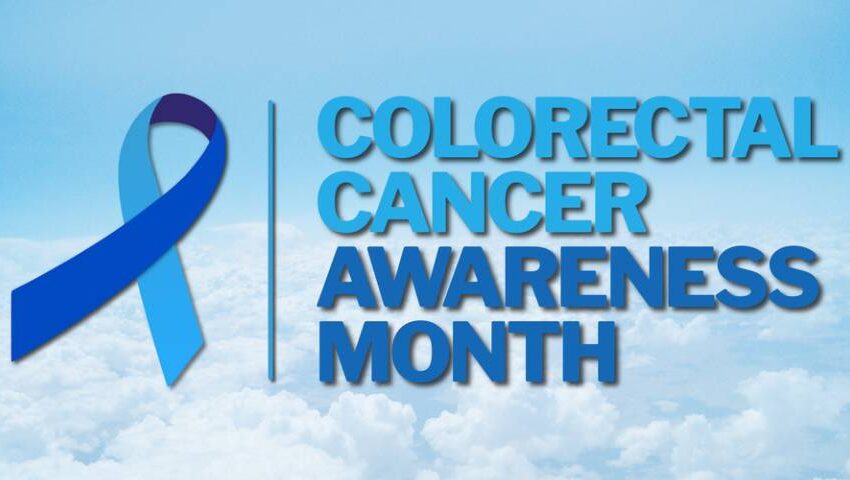
- 21/04/2021
- Dr. Samrat Jankar
- 0 Comments
- Blog
Colorectal Cancer Awarness : Myths and Facts
Per year, an estimated 50,000 people die from colorectal cancer. However, since the 1980s, due to several colon cancer awareness campaigns, the mortality rate has slowly declined. In Pune as well, cases of colon cancer have slowly declined. However, this cancer has not been completely defeated as some people still visit a laparoscopic surgeon in Pune for colon cancer surgeries.
For creating awareness for colon cancer, we must understand the myths and facts.
Colorectal cancer: myths and facts
The second-deadliest disease is colon cancer. However, there are several misconceptions about colon and rectal cancer that keep people from getting screened.
- Myth #1: “Only men are affected.”
The reality is that women have a lower chance of contracting colorectal cancer than men. Age is a much greater risk factor than gender.
- Myth #2: “I’m too young to develop colon cancer.”
Even though more than 9 out of 10 cases of colorectal cancer occur in people over 50, young people are at risk as well. This is because the number of young people diagnosed with colon cancer is increasing each year dramatically.
- Myth #3: Colonoscopies are painful
The truth: Colonoscopy is a standard test that many people are familiar with, but not everyone is sure of it. Sure, it is not fun, but it is not as horrible as you might believe. To begin with, most people only need one every ten years.
You will need to skip solid foods and take a bowel-cleaning agent the day before the surgery to clear your colon. You will be given sedative medication to make you more comfortable during the procedure, and most people can resume their normal activities the next day.
Overall, the trouble is well worth it. Precancerous polyps may be eliminated during the process, making it much less difficult to treat late-stage colon cancer, which could require surgery, radiation treatment, or chemotherapy.
Myth #4: Colonoscopies are dangerous
The truth: Because a colonoscopy is a medical procedure, complications can occur. A colonoscopy rarely causes tears in the colon or triggers diverticulitis. However, the average complication rate is calculated to be less than 1%. Before the treatment, the doctor will discuss the risks with you. However, the possible benefits outweigh the potential risks in most cases.
After speaking with your doctor, if you are still concerned about having a colonoscopy, other tests can be used to screen for colon cancer. Although a colonoscopy is always the most reliable procedure accessible, a fecal blood test (FOBT) done every 1–2 years or a sigmoidoscopy could be more convenient.
When do you get a bowel cancer screening?
Most specialists recommend having a colonoscopy once every 5 to 10 years for someone at average risk of colon cancer.
A person who is at a higher risk of colon or rectal cancer may need to be tested sooner or more frequently. You are likely to Develop colon cancer if you have:
- A diagnosis of colorectal polyps or cancer in the family
- Crohn’s disease or ulcerative colitis are inflammatory bowel diseases.
- A hereditary condition that raises the cancer risk, such as Lynch syndrome
- Diabetes
Any risk factors for colorectal cancer may be controlled, such as:
- Obesity or being overweight
- Tobacco use
- Lack of physical exercise
- Excessive alcohol intake
- A high intake of red meat
Discuss these risk factors with the doctor to see if early monitoring is right for you.
How to make colon health a priority?
Colorectal cancer can be avoided in several ways, including routine screenings. You should start prioritizing your colon wellbeing by making a few lifestyle changes.
The following nutritional and exercise improvements provide good evidence to show that they will dramatically decrease your risk of colorectal cancer:
- Increasing whole grains in your diet (3 servings per day)
- Restricting red meat intakes, such as beef and pork
- Cutting down on your alcohol consumption
- Staying in a balanced weight range
- Exercising daily
Although these lifestyle changes are beneficial to cancer prevention and general wellbeing, they should not replace cancer screenings. Colon cancer can take 10 to 15 years to grow before causing any symptoms. It is critical to identify and eliminate precancerous polyps at least once in ten years.
Consult your doctor on which screening tests they prescribe and how regularly they should be done. Inquire with your doctor if you can begin screening by the age of 45 if you have a family history of colon cancer or inflammatory bowel disease.
What can you do to raise awareness?
The first step in action is to become aware of the issue. There are several options to participate in Colon Cancer Awareness Month.
Donate to an agency that encourages colon cancer prevention, education, and research if you are willing. A quick way to express your appreciation for a loved one fighting colon cancer is to wear a dark blue ribbon.
You can also discuss the benefits of colon cancer screenings with your friends and family or share the news on social media. Share the story of how colon cancer has changed your life – or if you are a survivor, caregiver, or have lost a loved one. You never know how much of an effect you will have on someone.
